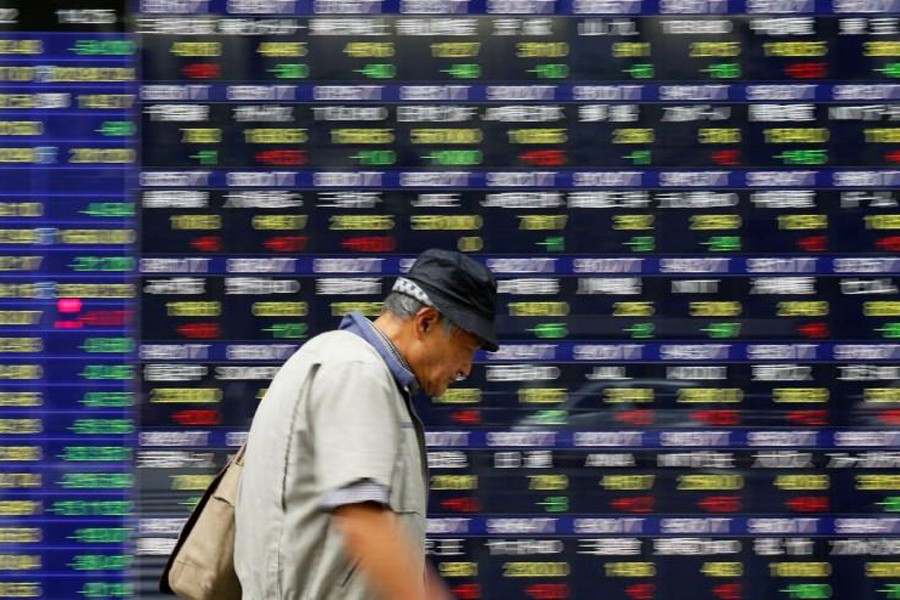Asian shares pared sharp early gains on Friday ahead of US payrolls data which could hasten Federal Reserve rate hikes, and as some caution set in about the new entente between North Korean leader Kim Jong Un and US President Donald Trump.
Kim has committed to “denuclearisation” and offered to hold the first-ever US-North Korea summit, marking a potentially dramatic breakthrough in the North Korea nuclear standoff.
Trump’s aides have been wary of North Korea’s diplomatic overtures because of its history of reneging on international commitments.
“Whether it comes to anything remains to be seen as we have seen this happen several times over the decades,” said Shane Oliver, Sydney-based chief economist for AMP.
“Or maybe its development of nuclear weapons was all just negotiating ploy. At least it will be ‘quiet’ on this front for a while yet.”
The jubilation about the informal alliance did not last long as equity investors booked profits while futures for the S&P 500 and FTSE inched lower.
Japan’s Nikkei was last 0.3 per cent firmer, having been up more than 2 per cent at one stage. South Korean stocks eased too but were still 1 per cent higher, reports Reuters from Sydney.
MSCI’s broadest index of Asia-Pacific shares outside Japan rose 0.6 per cent, while Australia firmed 0.3 per cent.
“What seems certain is that over the coming 6 to 9 months, unfolding negotiations should ensure greater geopolitical tranquility on the Korean peninsula,” said Aninda Mitra, senior sovereign analyst, BNY Mellon Investment Management.
“The main risk is, of course, Trump mishandles the potential for a breakthrough resulting in even heightened risk of a mishap.”
The mood had already brightened a little after Trump pressed ahead with tariffs but offered conditional exemptions for Canada and Mexico, offering at least the hope that a full-blown global trade war could be averted.
The White House said other countries could apply for exemptions on the 25 per cent tariff on steel imports and 10 per cent for aluminum, but details were sparse on when they might be granted and under what terms.
Several major trading partners have said they will respond with tariffs or direct action of their own.
The dovish tone was enough to see the euro fade back to $1.2310, having shed 0.8 per cent on Thursday. That helped the US dollar firm on a basket of currencies to 90.189.
The dollar gained 0.4 per cent on the yen to 106.63, amid the recovery in risk appetite.


